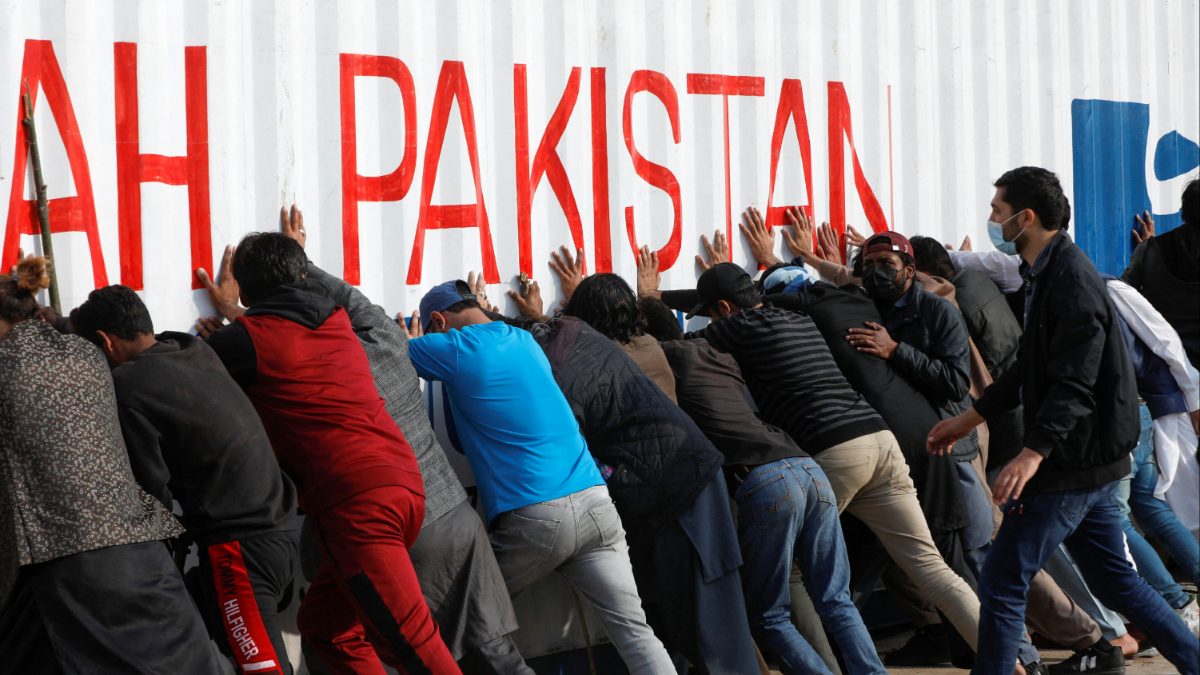Crisis after Crisis: Political Instability, Failing Economy, Terrorism Haunt Pak Since Regime Change
Following Imran Khan’s exit in 2022 via a no-confidence vote, Pakistan has been mired in several crises under the Shehbaz Sharif-led Pakistan Democratic Movement’s (PDM) coalition government.
Terrorist attacks on the Afghanistan-Pakistan border, economic crisis, dwindling forex reserves and threats to constitutional and human rights show Islamabad is fighting chaos and anarchy on multiple fronts.
Here are the main six crises that are haunting Pakistan:
Political Crisis: When the PDM combine submitted the no-confidence motion against former Pakistan prime minister Imran Khan, it triggered a political crisis. Continuous instability damages the political system and helps sow the roots of many other crises. The protest marches by Imran Khan and his Pakistan Tehreek-e-Insaf (PTI) workers across Pakistan’s major cities and subsequent clashes with law enforcement earlier this month made parts of Lahore and Islamabad look like active war zones.
Constitutional Crisis: Pakistan’s constitutional institutions have clashed with the judiciary of the country claiming that the people in power are clamping down on their freedom and institutions are disobeying them.
The recent bill clipping powers of the Pakistan Chief Justice and the ECP disobeying the top court’s order and not holding elections in Punjab and Khyber Pakhtunkhwa provinces are examples of how the constitution’s writ is not being followed.
The judiciary itself faces conflicts as there is a difference of opinions between the Chief Justice and other Supreme Court judges.
Economic Crisis: Pakistan remains in the midst of an economic crisis and the exit from Financial Action Task Force’s (FATF) ‘grey list’ and the European Union’s High Risk Third Countries’ list has been of no help. The economic crisis is partly due to the political unrest and instability but also because successive governments did not resolve economic issues when the situation was not so dire.
The International Monetary Fund (IMF) is yet to finalise the agreement and have imposed harsh conditions on the government, putting it between a rock and a hard place as elections near. The Sharif-led PDM remains in a conundrum whether to implement IMF recommendations which will burden the Pakistani common man or continue with subsidies for electoral benefits and harm economic growth in the long term.
Food, gas and oil prices have risen, with inflation hitting 47% on average weekly, setting a new record.
Dwindling forex reserves and depreciation of the Pakistani rupee against the US dollar to almost 75% in one year has also trailed the regime change.
Diplomatic Crisis: Pakistan also faces diplomatic isolation as China, Saudi Arabia and UAE have limited their help to Islamabad due to rising political instability.
Security Crisis: The rise of Tehreek-e-Taliban Pakistan (TTP) aided by the 2021 Taliban takeover of Pakistan has already led to unabated and at times deadly attacks on Pakistan Army and Pakistan police. Amidst all this, there are reports of rifts within the Pakistani military establishment.
Analysts told CNN-News18 that the reason behind General Asim Munir not chairing Corps and Formation Commanders Conferences for a long time is partly due to these internal rifts.
Meanwhile, the attacks on the security establishment have intensified, with terror attacks rising in Khyber Pakhtunkhwa and adjoining provinces. The problem remains so severe that the army is not in a position to provide security for the elections in Punjab and Khyber Pakhtunkhwa provinces.
The same army provided security for the 2003, 2008, 2013 and 2018 General Elections even though terrorism was still a problem.
With the ongoing economic crisis and the IMF’s recommendations, a funding crisis also affects the Pakistan Army.
Human Rights Crisis: The clashes between PTI workers, civil society activists and the government has put Pakistan in an uncomfortable position internationally.
The PTI is urging its chapters abroad to speak to the US and other Western governments about human rights conditions in the country. The Pakistan President Arif-ur-Rehman Alvi wrote to Prime Minister Sharif recently outlining the seriousness of incidents of human rights violations, alleged atrocities of police and law enforcement agencies and alleged disproportionate use of force against the Pakistani citizens.
“Your attention is drawn towards the seriousness of these incidents of human rights violations, atrocities of police/law enforcement agencies and grossly disproportionate use of force against the citizens of Pakistan. Multiple fake and frivolous cases have been registered against politicians, workers, journalists and media persons. Houses of political workers have been raided and citizens abducted without warrants and lawful justification, President mentioned in letter to PM,” the letter said.
The political, constitutional, economic, diplomatic, security and human rights crises have taken a toll on Pakistan’s stability and development. Observers are urging Pakistan’s leadership takes steps to address these issues and work towards a better future for the country.
Read all the Latest News here
For all the latest world News Click Here

